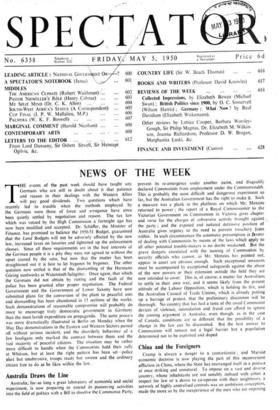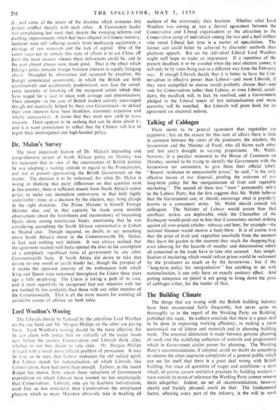China and the Foreigners
Cramp is always a danger to a contortionist ; and Marxist economic doctrine is now playing the part of this inconvenient affliction in China, where the State has rearranged itself in a posture at once striking and unnatural. To impose on a vast and diverse country, whose inhabitants are not notably imbued with either a respect for law or a desire to co-operate with their neighbours, a network of highly centralised controls was an ambitious conception, made the more so by the inexperience of the men who are imposing it ; and some of the tenets of the doctrine which animates this project conflict sharply with each other. A Communist leader was complaining last week that, despite the sweeping reforms and startling improvements which had been effected in Chinese industry, factories were still suffering acutely from inadequate equipment, a shortage of raw materials and the lack of capital. One of the surest ways not to remedy this state of affairs is to cut China off from the main sources whence these deficiencies could be, and in the past almost always were, made good. That is the effect which Peking's policy towards foreign business interests is rapidly bringing about. Strangled by obstruction and squeezed by exaction, the foreign commercial community, in which the British are both quantitatively and qualitatively predominant, now face the unwel- come necessity of breaking off the rearguard action which they have waged for a year or more with courage and determination. Their attempts—in the case of British traders actively encouraged though not materially helped by their own Government—to defend their own interests have been thankless, extremely expensive and wholly unsuccessful. It seems that they must now yield to force majeure. There appears to be nothing that can be done about it ; and it is scant consolation to reflect that the Chinese will live to regret their short-sighted and high-handed policy.







































